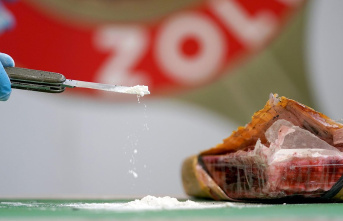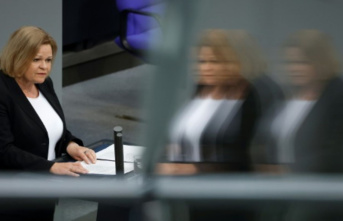There are few things more absurd than devoting efforts to trying to solve a problem that does not exist. This is precisely what is happening with the imagined persecution of the Spanish language in Catalonia, which is generally the epicenter of language immersion in schools.
For centuries, hostility against the Catalan language has been the Trojan horse of those who have defended the furious anti-Catalanism, including periods in which, as in the Franco regime, they had perpetrated atrocities as incomprehensible as banning the use of the language. Our parents and grandparents, who may now be reading this article, had been punished, even physically, if for some reason they had not been repressed and self-censored enough and were told to speak Catalan in the classroom or in the classroom. part. Perhaps in order to deny this uncomfortable reality and whitewash the past, in 2001, King Juan Carlos I uttered that controversial phrase: "No one was ever forced to speak Spanish in Catalonia."
With the recovery of the institutions and the consensual commitment to the linguistic immersion of the eighties, defended by almost the entire political arc, the Catalan language was able to begin to recover its presence and normalization after years of persecution. But in the 1990s, a discourse began to emerge and take shape to turn the Catalan language into the fuel with which the fire of anti-Catalanism was fueled. The campaigns of some great Madrid newspapers, waving the flag of a war of languages, which did not exist in the streets or in the classrooms and which turned any anecdote into a category, clearly contributed to fixing the idea of the persecution of the Spanish in Catalonia.
With all this in mind, the next season of this series was to reap the political fruits after shaking the tree of Catalanophobia, and it was in 2003 when we saw the birth of the Ciutadans party and its now extinct star, Albert Rivera, which in its origins had as its first and last point of its program the attack on Catalan. Campaigns of all kinds followed, with big media speakers, with the sole purpose of straining society. And it must be acknowledged that they achieved some of their goals and paved the way for the language to be judged and to try to achieve in the courts what they had not achieved at the polls or in the parliaments. From that dust come these muds.
Without expressly saying so, this week the courts have ordered that all schools and institutes in Catalonia be taught a minimum of 25% of the subjects in Spanish. This measure dispenses with the linguistic reality of each center and prescribes the same medicine for everyone, without any academic or pedagogical criteria, treating very different realities in the same way. Take as an example what the socialist mayor of the second city of Catalonia said a few weeks ago when she defended the immersion model and acknowledged that "in L'Hospitalet, what is needed is to guarantee the learning of Catalan".
With the data in hand, it is clear that the sentences on Catalan want to solve a problem that we do not have. Segons constata un informe d'experts del Consell Superior d'Avaluació del Sistema Educatiu, del novembre passat, els alumnes catalans obtenen resultats molt similars en llengua catalana i en llengua castellana i acaben l'educació secundària obligatòria amb un domini efectiu i similar d' both co-official languages.
Si ens fixem en les notes dels exàmens de selectivitat de català i de castellà, són semblants, amb resultats lleugerament millors en llengua castellana. I quan la comparació es fa amb els resultats d'altres comunitats autònomes, el 2020, els alumnes catalans van treure una nota mitjana de 6,5 en llengua castellana, només una dècima menys que els alumnes madrilenys (6,6), i van get better results than students from Extremadura and La Rioja (6.4), the Balearic Islands (6.1), Navarra (6.0) or Núñez Feijóo's Galicia (5.9). I el 2019, la nota de castellà dels alumnes catalans a la selectivitat va ser de 6,6, tres dècimes més que la mitjana espanyola, que va ser del 6,3.
Judicializing the language, regardless of the reality and the social and political consensus that exist in Catalonia, is a terrible favor for coexistence, unless what is intended is, in fact, to sentence Catalan as a language.
4












